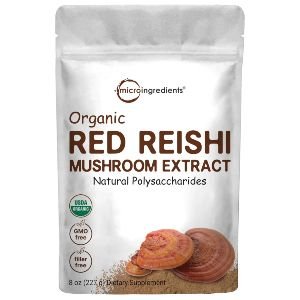30 Foods That Fight Inflammation According To Experts
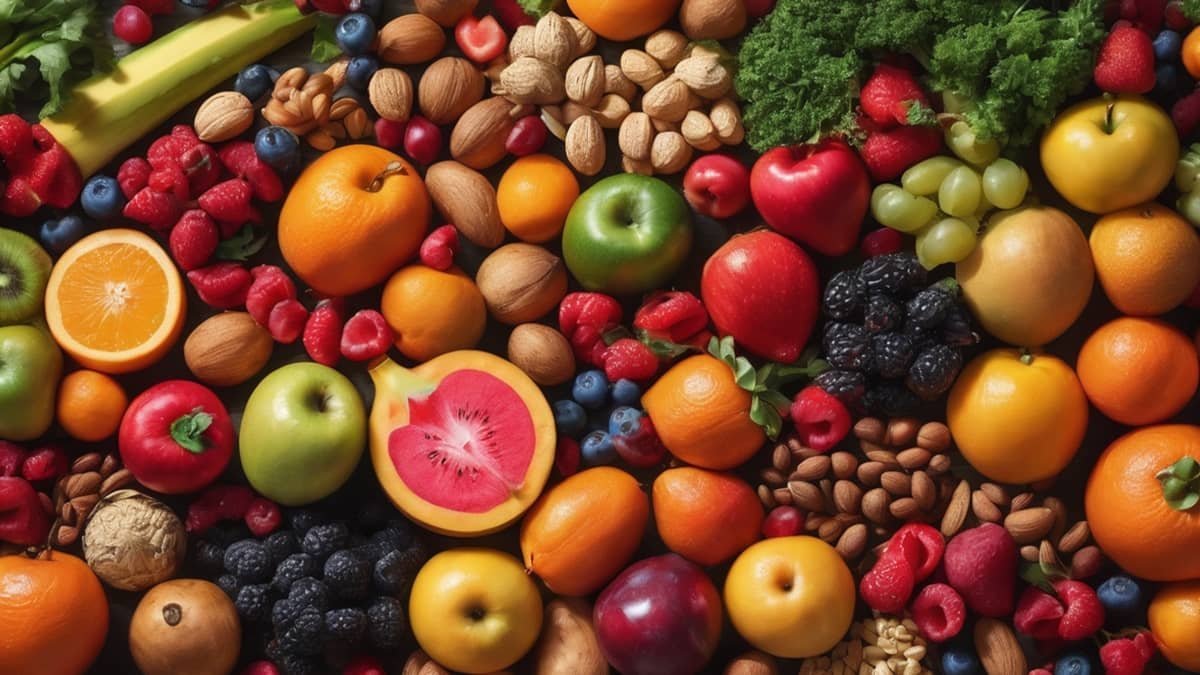
Many people nowadays suffer from chronic pain. It can be debilitating and prevent us from doing many everyday activities. We become addicted to numerous painkillers and in time, we start taking lots of them.
Luckily, Mother Nature always has the right way to help us. We can intake many foods which are known to be anti-inflammatory, stop the pain and also improve our health.
In this article I am going to reveal a list with 30 PROVEN foods that fight inflammation and are backed by scientific evidence and industry experts.
PROVEN Anti-inflammatory foods
| Food | Description |
|---|---|
| Tomatoes | Rich in lycopene, a carotenoid with antioxidant and anti-inflammatory properties. Helps prevent chronic degenerative and inflammatory conditions. |
| Extra Virgin Olive Oil | Great source of antioxidant compounds, including vitamin E, oleacein, and oleocanthal. May help prevent heart disease, promote brain function, and protect against certain types of cancer. |
| Green Leafy Vegetables | Sources of Vitamin K, essential to bone health, abundant in vitamins A, B (especially folic acid) and C. Provide antioxidants, chlorophyll, and are protective against cancers. Anti-inflammatory. |
| Nuts (Almonds, Walnuts) | Packed with omega-3 fatty acids, phytonutrients, and flavonoids with anti-inflammatory properties. |
| Fatty Fish (Salmon, etc.) | Great source of protein and long-chain omega-3 fatty acids (EPA and DHA) that help reduce inflammation, preventing health conditions. |
| Fruits (Apples, Pineapples, Oranges, Pomegranates) | Rich in antioxidants that fight inflammation, may reduce the risk of certain cancers. |
| Berries (Strawberries, Blueberries, Cherries) | Rich in anthocyanins, beneficial plant compounds linked to better heart health and anti-inflammatory effects. |
| Broccoli | Contains sulforaphane, an anti-inflammatory compound that may relieve flare-ups in inflammatory bowel diseases. |
| Avocados | Rich in nutrients, including polyunsaturated fatty acids (PUFAs) providing anti-inflammatory benefits. |
| Green Tea | Contains catechins, antioxidants preventing cell damage and offering various health benefits. |
| Peppers | Good source of vitamin C, A, fiber, and antioxidants. Compounds may help protect against cardiovascular diseases and inflammatory conditions. |
| Mushrooms | Low-calorie food with health-boosting vitamins, minerals, and antioxidants. Shown to improve immune system efficiency and have anti-inflammatory effects. |
| Grapes | Rich in antioxidants and anti-inflammatory phytochemicals such as flavonoids and carotenoids.. |
| Turmeric | Contains curcumin, a polyphenol with antioxidant and anti-inflammatory properties.. |
| Dark Chocolate and Cocoa | Contains compounds with anti-inflammatory properties. May help reduce inflammation in the body. |
| Cherries | High in antioxidants and anti-inflammatory compounds. Contains anthocyanins with anti-inflammatory effects that may reduce disease risk. |
| Black Pepper | Contains an active compound shown to decrease inflammation in animals. |
| Cardamom | Contains plant compounds with anti-inflammatory properties. |
| Cinnamon | Rich in highly potent polyphenol antioxidants with anti-inflammatory effects, may lower disease risk. |
| Clove | Contains phytonutrients eugenol and isoeugenol, with powerful anti-inflammatory effects. |
| Cumin | Contains antioxidants like apigenin and luteolin, counteracting the effects of free radicals and providing anti-inflammatory, antiseptic effects1. |
| Fenugreek | High in compounds known to decrease inflammation, critical for preventing chronic diseases2. |
| Fennel | Rich in antioxidants and anti-inflammatory compounds, thought to boost the immune system and improve blood circulation3,4. |
| Garlic | Acts as an anti-inflammatory to soothe sore joints and muscles. Various forms have antibacterial properties or positive impact on arteries5. |
| Ginger | Contains gingerol, shogaol, and paradol, active constituents with anti-inflammatory effects. Inhibits production of pro-inflammatory cytokines. |
| Onion | Contains quercetin, a flavonoid with anti-inflammatory effects. Inhibits LDL oxidation and protects/regenerates vitamin E. |
| Rosemary | Rich source of antioxidants and anti-inflammatory compounds, thought to boost the immune system and improve blood circulation8. |
| Acai Juice | Acai berries contain caffeic acid, an antioxidant that can help fight inflammation. |
| Flax Seeds | Excellent source of alpha-linolenic acid (ALA), an omega-3 fatty acid important for heart health. ALA may help reduce inflammation and prevent cholesterol deposition. |
| Chia Seeds | Rich in omega-3 fatty acids, well-known anti-inflammatory agents. |
💡 Numbers in brackets are links to scientific research and trusted sources.
1. Tomatoes
Tomatoes are good for reducing inflammation because they have an antioxidant called lycopene. This antioxidant helps lower inflammation by blocking the production of substances in the body that cause it. [1]
In addition to lycopene, tomatoes are also full of vitamin C, which is another antioxidant that fights against inflammation.
You can eat tomatoes in many ways – add them fresh into salads, cook them into sauces, or blend them into smoothies.
2. Extra virgin olive oil
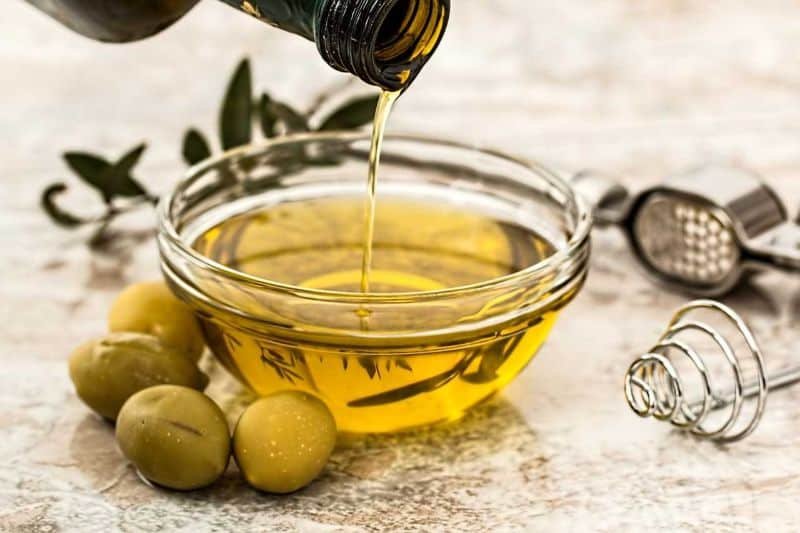
If you’re looking to reduce inflammation in your body, consider adding extra virgin olive oil to your meals.
Extra virgin olive oil is a good choice for fighting inflammation because it contains oleocanthal, a compound that works in a similar way to ibuprofen, reducing the body’s inflammatory responses. It does this by blocking enzymes called COX, which play a role in causing inflammation. [2] [3]
Extra virgin olive oil isn’t just good for its anti-inflammatory effects; it’s also packed with monounsaturated fats and antioxidants.
These can help lower inflammation too.
TIP: When purchasing olive oil, opt exclusively for Extra Virgin Olive Oil (EVOO) to ensure you maximize the health benefits derived from this heart-healthy fat.
3. Green leafy vegetables, such as spinach, kale, and collards
Green leafy veggies like spinach, kale, and collard greens are packed with stuff that can help reduce inflammation.
These greens are loaded with antioxidants, vitamins, and minerals that tackle inflammation head-on.
The vitamin K in these veggies is especially good for controlling inflammation in your body. Plus, they’ve special compounds called quercetin and kaempferol, and research shows they also help calm inflammation. [4] [5]
Lots of studies point out that people who eat more green leafy vegetables often have lower levels of inflammation. So, by eating these nutrient-rich greens, you’re giving your body an extra hand in staying healthy and keeping inflammation at bay.
TIP: Team up extra virgin olive oil with these veggies to double up on fighting inflammation.
4. Nuts like almonds and walnuts
Eating nuts like almonds and walnuts can help you deal with inflammation. These nuts are packed with monounsaturated fats, which are known to help reduce inflammation.
Specifically, almonds are loaded with vitamin E, which is an antioxidant that fights against oxidative stress in your body. Oxidative stress can lead to inflammation, so vitamin E is important for keeping it in check.
Both almonds and walnuts also have fiber that helps good bacteria grow in your gut. This can help lower inflammation.
Walnuts, in particular, are a good source of omega-3 fatty acids, which are famous for their anti-inflammatory properties.
Research has shown that adding almonds and walnuts to your diet can help lower inflammation, which is good for your overall health. [6] [7]
DID YOU KNOW?
Just one ounce of almonds contains 50% of the Daily Value for vitamin E. [8]
5. Fatty fish like salmon, mackerel, tuna, and sardines
Eating fatty fish like salmon, mackerel, tuna, and sardines is good for you because they’re full of omega-3 fatty acids.
These are important nutrients that help fight inflammation in your body. What these healthy fats do is they help cut down on the body’s production of substances that can cause inflammation – such as inflammatory eicosanoids and cytokines. [9] [10]
Research has also shown that if you eat fatty fish regularly, you might have lower levels of C-reactive protein, which is a sign of inflammation in your body. [11]
Also, omega-3s are linked to a lower chance of getting diseases that come with inflammation, like heart disease, arthritis, and some cancers.
TIP: It’s a good idea to eat fatty fish at least two times a week to get these benefits and help your overall health. For example, you could have grilled salmon for dinner one night and add some tuna to your salad later in the week. This way, you’re adding these important nutrients to your diet and taking care of your body.
Related: Tuna Vs Sardines: Which Fish Reigns Supreme In The Seafood World?
6. Fruits like apples, pineapples, oranges, pomegranates
If you’re looking to reduce inflammation, adding fruits such as apples, pineapples, oranges, and pomegranates to your diet can be a smart move.
- For example, apples have a substance called quercetin, which is known to reduce inflammation.
- Pineapples contain an enzyme called bromelain, which may help lessen inflammation and swelling. [12]
- Oranges are full of vitamin C, and eating them can help decrease inflammation indicators in your body.
- Pomegranates are rich in antioxidants, including punicalagins and anthocyanins, which are powerful in combating inflammation.
Eating these fruits regularly can be good for your health as they can help with inflammation. You can enjoy them as snacks, blend them into smoothies, or add them to your meals to make them both delicious and good for you.
7. Berries such as strawberries, blueberries, cherries
Talking about foods that can help reduce inflammation, let’s not forget about berries like strawberries, blueberries, and cherries. These fruits are packed with antioxidants, especially a kind called flavonoids, known to help lower inflammation.
Research shows that eating berries can decrease the amount of inflammation markers in your body. Take cherries and blueberries, for example – they contain anthocyanins, which are linked to reduced inflammation. [13]
Berries also have a lot of fiber, which is good for a healthy gut, and having a healthy gut helps keep inflammation down.
TIP: You can enjoy berries in many ways – eat them fresh, use them frozen, or blend them into a smoothie. They’re tasty and can be a great part of a diet aimed at reducing inflammation.
8. Broccoli
Broccoli is another great vegetable for fighting inflammation because it’s packed with antioxidants and compounds that help prevent inflammation.
One of these is sulforaphane, which is a sulfur-containing compound that helps to halt enzymes responsible for joint damage and inflammation. [14]
Broccoli is also rich in vitamin K, which plays a part in reducing inflammation.
Additionally, its high fiber content is good for your gut health, which is connected to lower inflammation levels.
Broccoli also contains kaempferol, a substance that has been shown to have anti-inflammatory effects.
Related: Broccoli Sprouts Vs Mature Broccoli: Why are Broccoli Sprouts Healthier Than Mature Broccoli?
9. Avocados
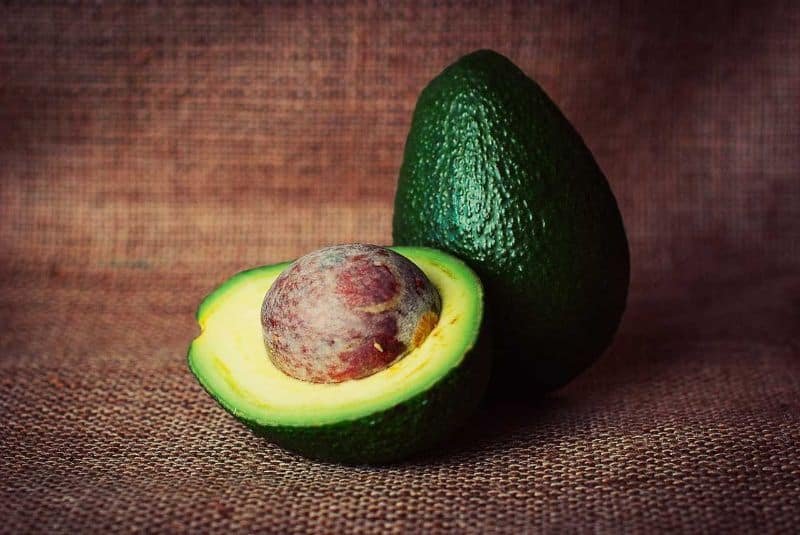
Avocados are a good choice if you’re looking to reduce inflammation because they’re high in monounsaturated fats.
Avocados are also packed with antioxidants, such as carotenoids, tocopherols, and polyphenols. These antioxidants are known to help fight inflammation. [15]
Plus, avocados have something called phytosterols, which might also help in reducing inflammation. [16]
Another reason avocados are good for fighting inflammation is because they’ve a lot of potassium and vitamin E.
Potassium is important for keeping your body’s fluid balance in check, which can help with inflammation. Vitamin E is an antioxidant that protects your cells from damage and also has anti-inflammatory effects.
TIP: It’s really easy to add avocados to your diet. You can put slices on your salad, blend them into a smoothie, or spread them on your toast. Eating avocados can help you take advantage of their inflammation-fighting properties and support your overall health.
10. Green tea
Green tea has substances called polyphenols, with one called epigallocatechin-3-gallate, or EGCG for short, that’s been looked into for its ability to lessen inflammation.
Research shows that EGCG can stop certain molecules from being made that can damage joints in people with rheumatoid arthritis. [17] [18]
Green tea is also full of antioxidants that protect your body from the kind of stress that can lead to inflammation.
Drinking green tea might even lower your chances of getting diseases linked to inflammation, like heart disease and some cancers (endometrial, lung, oral and ovarian cancer, and non-Hodgkins lymphoma). [19] [20]
If you start having a few cups of green tea every day, it can play a part in your wider efforts to reduce inflammation.
11. Peppers
Peppers have a substance called capsaicin that has been researched for its ability to lessen inflammation.
Studies show capsaicin might lower pain and inflammation by blocking a certain signal in the nervous system that’s linked to swelling. [21]
Peppers are also full of vitamins A and C, which are antioxidants.
You can add different kinds of peppers, like bell peppers, chili peppers, and cayenne peppers, to your meals for extra nutrients. You can eat them raw, cook them, or use them to add flavor to your food.
12. Mushrooms
Mushrooms are great to eat if you’re looking to fight inflammation. Different kinds, like shiitake, maitake, and reishi, are known for their anti-inflammatory effects.
Here’s a list with the most healthy mushrooms.
They’ve substances in them like polysaccharides and phenolic compounds that help to lower inflammation in your body.
Plus, they’re rich in antioxidants, which are important because they help protect your body from damage and inflammation.
TIP: You can add mushrooms to your meals in many tasty ways—try them sautéed, grilled, or tossed into your soups and salads.
13. Grapes
Grapes are full of antioxidants like resveratrol and flavonoids, which research shows can reduce inflammation in your body.
Resveratrol is especially interesting to scientists because it might help lower the risk of some chronic diseases by fighting inflammation.
Grapes also have a lot of water, which is good for keeping you hydrated. Staying hydrated is important because it helps your body manage inflammation better.
TIP: You can enjoy grapes in many ways: eat them fresh, freeze them for a cool treat, or blend them into a smoothie.
14. Turmeric
Turmeric is known for its ability to fight inflammation because of a substance called curcumin. Some even say it is the MOST powerful anti-inflammatory food in the world.
Scientists have done a lot of research on curcumin and think it might help lower inflammation in your body by stopping certain molecules that cause inflammation.
This could be good news for people with conditions like arthritis, metabolic syndrome, and some autoimmune disorders, which are often linked with inflammation.
TIP: To get more turmeric into your diet, you can cook with it, put it in your smoothies, or make a warm cup of turmeric milk. It’s worth mentioning that to get the most benefit from curcumin, it’s best to have it with black pepper and a fat source like olive oil or coconut milk. This helps your body absorb in more curcumin.
15. Dark chocolate and cocoa
If you’re looking to reduce inflammation in your body, adding dark chocolate and cocoa to your diet could help.
Dark chocolate is full of antioxidants called flavonoids, which help to fight inflammation. Research shows that eating dark chocolate can lower some signs of inflammation. [22]
Cocoa, which is the key part of dark chocolate, is also packed with these helpful flavonoids and has been connected to decreased inflammation levels.
It’s important to pick dark chocolate that has at least 70% cocoa (I prefer at least 85% cocoa) to really get these benefits.
But remember, dark chocolate is still high in calories and sugar, so it’s best to eat it in small amounts.
16. Cherries
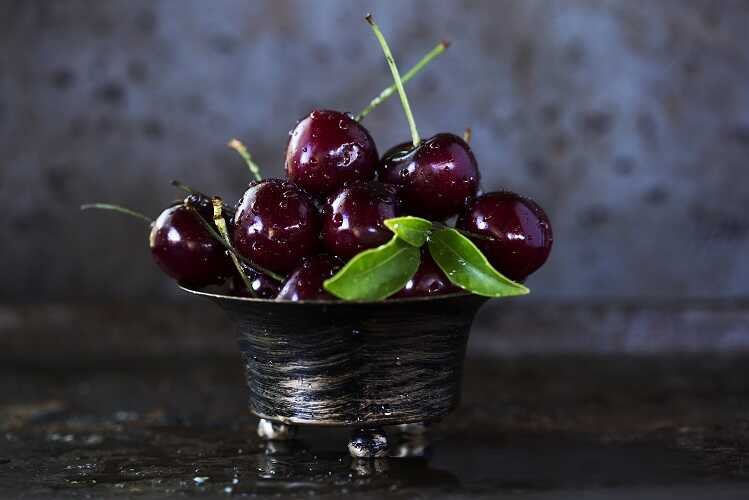
Cherries are packed with antioxidants like anthocyanins and cyanidin, which help reduce swelling in your body.
These substances work in a way that’s similar to common pain relievers like aspirin or ibuprofen by blocking enzymes that cause inflammation. [23]
Plus, cherries have a lot of quercetin, which is known for fighting inflammation and slowing down the aging process.
Research has found that eating cherries or drinking cherry juice can lower the levels of some signals in the body that indicate inflammation. This could help decrease the chances of getting diseases like arthritis and gout. [24]
17. Black pepper
Black pepper is more than just a spice to add flavor to your food; it’s also good for your health because it helps reduce inflammation.
The reason black pepper is good for fighting inflammation is because it has a substance in it called piperine.
Piperine is known to slow down some of the genes that cause inflammation, and it prevents the body from making too many of the chemicals that make inflammation worse.
People with conditions that cause a lot of inflammation, like arthritis, might find that adding black pepper to their diet helps ease their symptoms.
Another great thing about black pepper is that it helps your body absorb more nutrients from the other foods you eat.
So in essence it helps your body fight inflammation and helps with nutrient bioavailability.
18. Cardamom
Cardamom has ingredients like terpenoids that reduce swelling, which can help you stay away from chronic diseases that are caused by too much inflammation. [25]
Research shows that eating cardamom can lower certain signs of inflammation, such as C-reactive protein levels. [26]
You can easily add cardamom to your cooking. It’s great in many recipes, from spicy curries and flavored rice to warm teas and sweet baked treats.
Both the whole pods and the powdered form can give your meals a boost in flavor and might help with inflammation.
19. Cinnamon

If you want to reduce inflammation, consider adding cinnamon to what you eat because it’s proven to fight inflammation.
Cinnamon has a compound called cinnamaldehyde, which is known to help with lowering inflammation and might even help you avoid long-term health problems.
Cinnamon is also full of antioxidants, which help fight off harm and inflammation in your body.
You can easily use cinnamon’s anti-inflammatory goodness by sprinkling it on your oatmeal or yogurt, or mixing it into your smoothies.
Just be careful about which type of cinnamon you use. For example, Cassia cinnamon has something called coumarin, which isn’t good for you in large amounts. It is better to use Ceylon cinnamon which is the most potent.
20. Clove
Can clove help reduce inflammation in your body?
Yes, clove is known for its strong anti-inflammatory effects. It has eugenol, a compound that’s been studied for its role in lowering inflammation and easing pain.
Studies have found that clove might help reduce the levels of substances in the body that cause inflammation, which could lower the chances of getting chronic diseases that are often related to inflammation.
You can add clove to your diet by putting it in savory dishes, teas, or as a spice. But it’s important to use it in small amounts because eating too much can cause negative side effects.
21. Cumin
Cumin has active components like cuminaldehyde and thymoquinone, and research has shown that they can help reduce inflammation in the body.
It’s easy to use this spice in many recipes like soups, stews, and curries. It doesn’t just add great flavor but might also help your body manage inflammation better.
Cumin has a long history in traditional medicine, and recent studies support its benefits. It’s a simple spice that can make a big difference in how your body handles inflammation.
22. Fenugreek
Fenugreek is known for its ability to fight inflammation, and it’s easy to add to what you eat to help improve your health.
This herb has special compounds like fenugreekine and alkaloids that are really good at reducing inflammation.
Studies show that fenugreek can lower inflammation in the body.
You can use fenugreek seeds or powder in your meals, make tea with it, or even take supplements if you want to get its benefits.
Plus, fenugreek is packed with fiber, antioxidants, and many important nutrients, all of which are good for your health.
23. Fennel
Fennel contains a substance called anethole, which is known to help “calm” inflammation. On top of that, fennel is packed with antioxidants like quercetin and kaempferol, which also help to lower inflammation by fighting off oxidative stress in your body.
There are many ways to enjoy fennel. You can eat it raw in a salad, roast it as a side dish, or add it to soups and stews.
Fennel has a unique flavor that can make your food taste fresher and have a pleasant aroma. You can slice it thinly to add crunch to your salads or cook it to bring out a sweeter taste.
24. Garlic
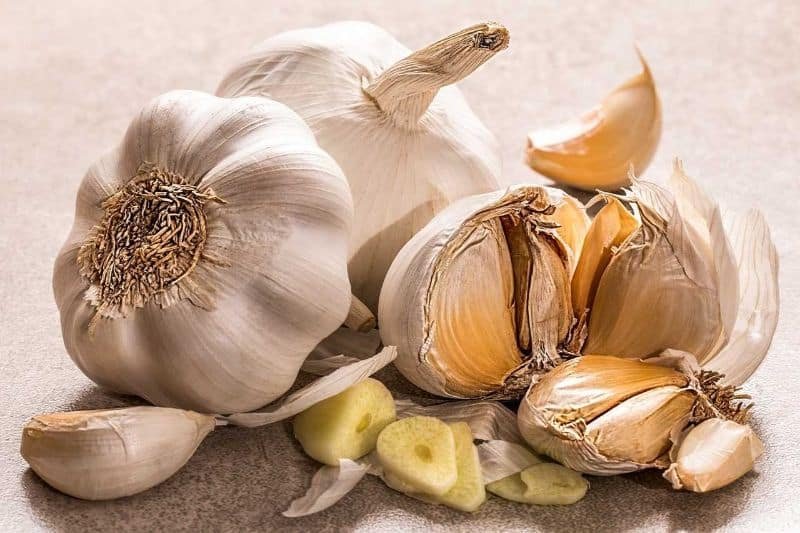
Garlic is well-known for its ability to help reduce inflammation, according to many health experts. The key to this is a compound called allicin, which is found in garlic.
Allicin is known to help block some of the body’s processes that lead to inflammation, which can be especially helpful for people with arthritis or inflammatory bowel diseases.
To get these benefits, it’s a good idea to include garlic in your meals regularly. You can easily add it to different recipes, like mixing minced garlic into stir-fries, pasta, soups, and salad dressings.
Also, you can roast garlic and spread it on bread or crackers for a tasty and healthy option.
25. Ginger
If you want to add foods to your diet that may help with inflammation, ginger is a good choice. It’s similar to garlic in that way.
Ginger has substances like gingerol, paradol, and shogaol. Research suggests these substances might help reduce inflammation by blocking the production of certain chemicals in the body that cause inflammation.
For example, people with conditions like osteoarthritis and rheumatoid arthritis might find ginger helpful in reducing their inflammation. It might also be good for easing muscle pain after working out.
To start using ginger in your meals, you could try putting it in your smoothies, teas, or stir-fries. You can even mix it into your salad dressings.
26. Onion
Onions are another great choice if you’re looking to reduce inflammation. Onions have substances like quercetin that help to lower inflammation. Quercetin does this by blocking the production and release of chemicals in the body that cause inflammation.
Onions also have sulfur compounds that play a part in controlling inflammation, which might help you avoid diseases linked to long-term inflammation.
You can easily add onions to your meals, whether you like them raw or cooked. They can make dishes like salads, soups, and stir-fries both tasty and more beneficial for your health.
27. Rosemary
Rosemary is well-known for its ability to help reduce inflammation. It has two main ingredients, carnosic acid and rosmarinic acid, which are strong antioxidants.
They work by getting rid of harmful molecules called free radicals and blocking substances in your body that can cause inflammation.
Research has shown that taking rosemary extract can lower levels of inflammation, which might help prevent long-term diseases that come from inflammation, like some forms of arthritis.
Adding rosemary to what you eat is easy. You can sprinkle it on roasted veggies, mix it into soups, or use it to flavor your salad dressings. If you like, you can also make a simple rosemary tea. Just soak some fresh or dried rosemary in hot water.
28. Acai Juice
Acai juice is known for its anti-inflammatory properties, which can be beneficial for your health. The dark purple acai berry is packed with antioxidants, especially anthocyanins, which help reduce inflammation in the body.
Since inflammation can lead to chronic diseases, drinking acai juice might be a good way to help prevent these issues.
Acai berries also have a lot of fiber and healthy fats, which are good for your digestive system and can lower the risk of heart disease. When picking out acai juice, it’s best to choose one without extra sugars to get the most health benefits.
You can drink acai juice by itself or mix it into smoothies for an extra tasty and healthy addition to your meals. Adding acai juice to your daily routine could help with inflammation and support your overall health.
29. Flax Seeds
Flax seeds are packed with alpha-linolenic acid (ALA), which is a type of omega-3 fatty acid. Once you eat them, your body changes ALA into substances that can help calm inflammation.
Flax seeds also have lignans, which are like antioxidants and can help to bring down inflammation in your body by affecting certain markers that show if you have inflammation.
TIP: Sprinkle flax seeds on your smoothies, yogurt, or oatmeal, or use them as a crunchy salad topping. It’s often better to grind flax seeds before you eat them because your body can take in their nutrients more easily that way.
30. Chia Seeds
Finally, chia seeds are another great choice if you’re looking to reduce inflammation in your body.
These small seeds are full of omega-3 fatty acids, which help to lessen inflammation. They’re also loaded with antioxidants, fiber, and protein, which all help to fight inflammation.
You can easily add chia seeds to your diet. Try sprinkling them on your yogurt, mixing them into your smoothies, or using them to thicken up recipes.
Foods that cause inflammation
Now that we’ve analyzed the foods that fight inflammation let’s see which foods cause inflammation in the first place.
- Take sugary stuff like candy and fizzy drinks, for example – these can ramp up inflammation.
- Fried foods and refined carbs such as white bread and cakes are also known to increase inflammation levels.
- It’s a good idea to keep an eye on how much meat you eat that’s been cooked at high temperatures, along with processed meats, because they can make your body more inflamed too.
- And drinking too much alcohol is another thing that can lead to more inflammation.
Sugar
If you want to lower inflammation in your body, it’s a good idea to eat less sugary stuff. Eating lots of sugar can make your body inflamed over time, and this can be bad for your health. It can lead to weight problems, diabetes, and heart issues.
When you eat something sweet, your blood sugar can go up quickly, and that can make your body produce things that cause inflammation. Too much sugar can also make your immune system overactive, which can cause more inflammation.
To help keep inflammation down, try not to eat too many sweets, sugary drinks, or foods with extra sugar added to them.
TIP: When you’re craving something sweet eat a sweet fruit like a banana or a red apple. Fruits are good because they’ve fiber and antioxidants, which are healthy for you.
Fried Foods
Fried foods like French fries and chicken nuggets aren’t great for your health.
And please, stop feeding your kids with chicken nuggets thinking that they’re “innocent”.
They’re full of unhealthy fats and, when cooked at high temperatures, they can create bad chemicals like AGEs and PAHs. These chemicals can cause swelling and irritation in your body, which is what we mean by inflammation.
If you eat too much fried food, you might have a higher chance of getting long-term health problems like heart disease, diabetes, and being overweight. It’s because the oils often used for frying, like vegetable and seed oils, have a lot of omega-6 fatty acids. Your body needs these, but too much can lead to inflammation.
TIP: To cut down on these bad fats and chemicals, you could try cooking your food in different ways, such as baking, grilling, or steaming or using an air-fryer.
Refined carbohydrates such as white bread, pastries and
If you’re worried about inflammation, you might want to ditch white bread and pastries.
These foods are full of refined carbs, and they’re not great for inflammation.
Why?
Well, they make your blood sugar levels shoot up quickly, which can lead to your body producing more things that cause inflammation. Plus, they don’t have much fiber or nutrients, unlike whole grains, which actually help fight against inflammation.
Research has shown that eating a lot of these refined carbs can lead to health problems like obesity, diabetes, and heart disease, which all have to do with long-term inflammation.
TIP: You might want to swap out that white bread for something like whole wheat bread, oats, or quinoa.
Meats cooked at high temperatures and process meats
If you’re worried about inflammation, it’s good to know that eating a lot of meats cooked at high temperatures, like when you grill, fry, or broil, as well as processed meats, can make inflammation worse. These types of meat might cause more inflammation, just like eating too much sugar or white bread can.
Cooking meat at high temperatures creates harmful substances called AGEs and PAHs, which are linked to more inflammation. Processed meats, which include things like bacon, sausages, and hot dogs, are often full of saturated fats and added stuff that can also lead to inflammation.
TIP: To cut down on these risks, try cooking methods like boiling, steaming, or using a slow cooker, and choose meats that don’t have a lot of fat. Also, STOP eating processed meats such as salami, sliced turkey and sausages.
Alcohol
Drinking less alcohol is important because it helps reduce inflammation in your body. When you drink alcohol, it can upset the balance of good and bad bacteria in your stomach, which might lead to a condition where harmful substances get into your bloodstream.
This can cause your immune system to react and create inflammation.
Also, when your liver processes alcohol, it creates harmful byproducts that can hurt liver cells and cause more inflammation. Long-term inflammation is linked to several health problems, like heart disease, diabetes, and some cancers. By drinking less, you can help lower these risks and improve your overall health.
Related: Is There A Safe Level Of Alcohol Consumption?
Processed foods of any kind
Reducing the amount of processed foods you eat is a good idea because they can cause inflammation in your body.
This kind of inflammation can upset the balance of good and bad bacteria in your stomach. It might even lead to harmful substances getting into your bloodstream. Processed foods are often full of unhealthy fats, sugars, and artificial additives that can make your body respond with inflammation.
Also, when foods are processed, they lose a lot of their nutrients and fiber, which can add to the problem. Studies show that if you eat a lot of processed foods, you might’ve a higher chance of getting long-term illnesses like heart disease, diabetes, and obesity. These conditions are often related to inflammation.
Benefits of anti-inflammatory foods
An anti-inflammatory diet, along with exercise and good sleep, may provide many benefits, including:
- Protecting Against Chronic Illnesses: Chronic inflammation can damage your heart, brain, and other organs, and it plays a role in nearly every major illness, including cancer, heart disease, Alzheimer’s disease, and depression.
- Improving Symptoms of Chronic Illnesses: Improvement of symptoms of arthritis, inflammatory bowel disease, lupus, and other illnesses1.
- Maintaining a Healthy Weight: Doctors, dietitians, and specialists around the world recommend an anti-inflammatory diet as it helps to maintain a healthy weight.
- Overall Health Improvement: It’s hugely beneficial for our overall health.
Remember, everyone’s inflammatory triggers are different, so there are a few reasons you might experience inflammation.
Anti-inflammatory diet plan
Here’s a simple 7-day anti-inflammatory diet plan. Remember, this is just a general guide and may not suit everyone’s dietary needs or preferences.
| Day | Breakfast | Lunch | Dinner | Snacks |
|---|---|---|---|---|
| 1 | Greek yogurt topped with berries and a sprinkle of cinnamon | Mixed green salad with grilled salmon, cherry tomatoes, and avocado, dressed with extra virgin olive oil | Grilled chicken with a side of steamed broccoli and quinoa | A handful of almonds or walnuts |
| 2 | Smoothie made with spinach, banana, pineapple, and flax seeds | Whole grain sandwich with lean protein (like turkey) and a side of bell peppers and hummus | Baked fish with a side of roasted Brussels sprouts and sweet potatoes | Dark chocolate and an orange |
| 3 | Oatmeal topped with sliced apples and a sprinkle of turmeric | Quinoa salad with mixed greens, grilled chicken, and a vinaigrette made with extra virgin olive oil | Grilled salmon with a side of steamed asparagus and quinoa | A handful of cherries and walnuts |
| 4 | Greek yogurt topped with mixed berries and a sprinkle of chia seeds | Whole grain sandwich with lean protein (like chicken) and a side of raw veggies and hummus | Baked chicken with a side of roasted cauliflower and sweet potatoes | Dark chocolate and a pear |
| 5 | Smoothie made with kale, banana, blueberries, and flax seeds | Mixed green salad with grilled salmon, cherry tomatoes, and avocado, dressed with extra virgin olive oil | Grilled fish with a side of steamed broccoli and quinoa | A handful of almonds or walnuts |
| 6 | Oatmeal topped with sliced pears and a sprinkle of cinnamon | Quinoa salad with mixed greens, grilled chicken, and a vinaigrette made with extra virgin olive oil | Baked chicken with a side of roasted Brussels sprouts and sweet potatoes | Dark chocolate and an apple |
| 7 | Greek yogurt topped with mixed berries and a sprinkle of chia seeds | Whole grain sandwich with lean protein (like turkey) and a side of bell peppers and hummus | Grilled salmon with a side of steamed asparagus and quinoa | A handful of cherries and walnuts |
Remember to drink plenty of water and green tea throughout the day, and feel free to adjust this plan to your liking.
Bottom Line
Adding foods that fight inflammation to your diet can really help you feel better overall. When you eat things like berries, fatty fish, and green, leafy vegetables, you’re helping your body defend itself against inflammation.
It’s also a good idea to cut back on processed foods, too much sugar, and too much alcohol because these can make inflammation worse. Making these diet changes can really make a difference to your health over time.
Check Also






